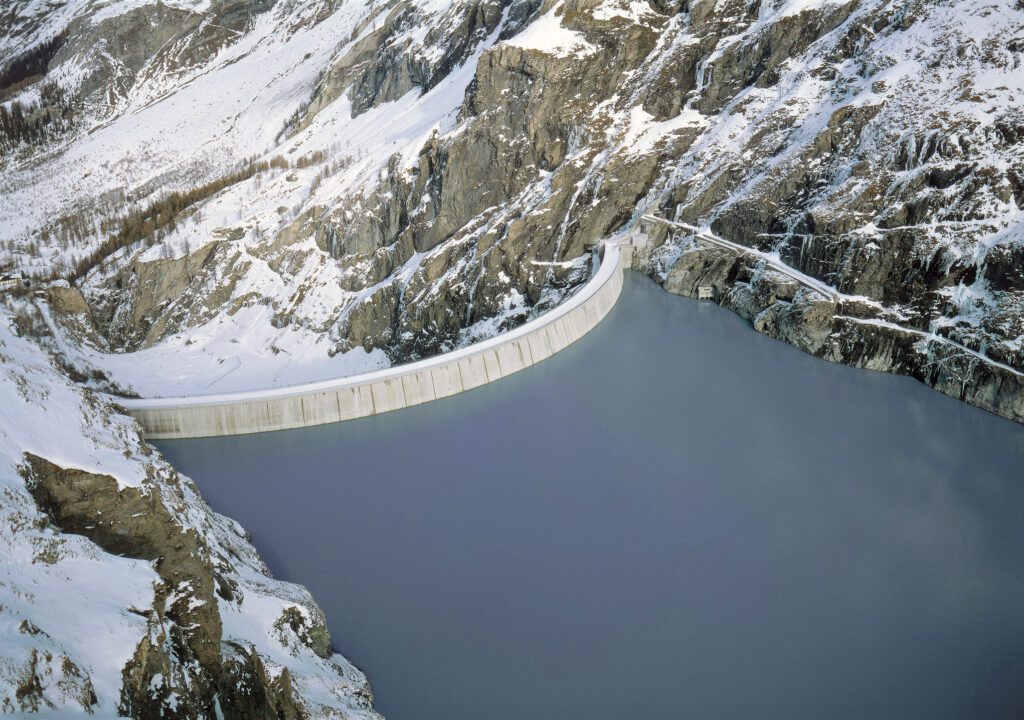Switzerland Secures 250-MW GE Gas Power Temporary Power Plant For Crucial Winter Reserve
Credit to Author: Sonal Patel| Date: Thu, 06 Oct 2022 14:43:36 +0000

The Swiss Federal Office of Energy (SFOE) will install 250 MW of temporary reserve power—via eight trailer-mounted GE Gas Power TM2500 mobile aeroderivative gas turbine units—to secure critical power supplies this winter.
GE Gas Power said the units, which will be located at GE’s Manufacturing Center in Birr, in the Swiss canton of Aargau, near Zurich, could deliver power to the grid as early as February 2023. GE has a contract with SFOE to install, operate, and maintain the units through 2026.
Like several European countries, Switzerland is bracing for energy shortages this winter amid mounting concerns about an energy-political conflict with Russia. The country has embarked on several short-term measures to bolster its energy security against several uncertainties afflicting European energy markets. Along with the gas power reserve, it recently established a hydropower reserve.
Bracing for an Energy Crisis This Winter
According to the Expert Group for Security of Supply at the Swiss Federal Institute of Technology in Zurich, Switzerland imported 131 TWh of energy via fossil fuels in 2020, roughly half of its primary energy demand. Most of Switzerland’s imported natural gas has typically come from Germany, which until recently relied on Russia for about 55% of its natural gas.
While SFOE estimates Switzerland relied on natural gas for 11.9% of its energy demand in 2020, the Alpine country’s electricity production was dominated mainly by hydropower (68% from large and small plants) in 2021. Non-hydro renewables produced 11.5% of the country’s total generated power in 2021, and less than 2% came from fossil energy. Nuclear energy also contributed a hefty 18.5% share of generated power in 2021, though that is much lower than the 28.9% of nuclear’s share in the country’s capacity mix. Nuclear’s future as a reliable power source has dimmed because Swiss voters in 2017 voted to phase out nuclear power. The 355-MW Mühleberg nuclear power station—the first of its five nuclear plants—was permanently switched off in December 2019.
While SFOE acknowledges the country faces a long list of electricity security risks, concerns have ramped up this year owing to gas supply disruptions associated with the Ukraine war, the reduced capacity of French nuclear power plants, and a drought that has disrupted fuel shipments and hydropower production across Europe.
These factors persist, the Swiss government suggested in September. It said that the level of Swiss reservoirs is currently just below the long-term average, and inflows will likely be lower this year owing to a below-average snow reserve and drought. And though gas flows into Switzerland “are normal,” disruptions in gas flows from Nord Stream 1 have posed financial risks for electricity companies because the gas market is closely linked to the electricity market.
“The electricity supply situation is critical, and there is a real possibility of an energy crisis across the continent,” SFOE warned in a Sept. 23 report.
Acting on a financial aid package passed in June, the government has so far rescued at least one power company. It granted Axpo Group, Switzerland’s largest producer of renewable energy, a $4 billion credit line to cover the collateral requirements of long-term power supply contracts. “So far, Axpo has been able to cope with this challenging situation, but as developments in the coming months are unpredictable, we have agreed on a credit line with the Swiss government as a precautionary measure. So far, however, Axpo has not used any of the funds,” the company said. “Throughout Europe, governments are supporting electricity producers in this extreme situation with liquidity in order to stabilize the system (for example, Germany, Sweden, Finland, France or the Czech Republic),” it noted.
Fuel Flexibility Is Paramount
The Swiss Federal Council has also moved quickly to introduce other short-term measures to ensure enough power during the 2022/2023 winter. On Sept. 2, the Swiss Federal Department of the Environment, Transport, Energy, and Communications (DETEC) signed an order for temporary reserve power with GE Gas Power for a combined 250 MW via a plant comprising eight TM2500 mobile gas turbines. “This corresponds to around two and a half times the capacity of the Rheinfelden hydroelectric power station. In addition to gas, they can also be operated with oil or hydrogen,” the government said. Total costs for the temporary reserve’s entire term amount to around 470 million Swiss francs ($476 million). The government also noted it is negotiating with other possible suppliers for additional reserve power.
GE Gas Power told POWER that the Birr temporary reserve plant’s dual fuel capabilities and fast installation time were crucial elements in the government’s decision to use GE’s mobile aeroderivative units. Once all electrical components are in place, the TM2500 can generate power within minutes at outputs of up to 34 MW in winter conditions, the company said.

“These units can reach full production capacity in a short time, which enables power providers to quickly meet peak demand and ramp down units and avoid wasting energy when demand is lower; and they are engineered with vast fuel flexibility,” said Clive Nickolay, CEO of GE Gas Power’s Aeroderivative Business.
Fuel flexibility has quickly emerged as a paramount requirement across Europe. On Sept. 23, DETEC recommended urging operators of dual-fuel systems to switch from gas to fuel oil to save significant amounts of gas and help Switzerland achieve its voluntary gas savings target of 15%, which the country, like the European Union, is aiming for between October 2022 to March 2023.
“GE’s TM2500 gas turbines can run on several different fuel sources including hydrogen, biogas or biodiesel and synthetic fuels produced with renewable energy, the most readily available in the area, and with lower-carbon footprints, such as synthetic fuels/SAF (sustainable air fuels). This is a crucial capability that our technology offers today for tomorrow’s sustainable power generation,” said Christian Verhoeven, Chief Technology Officer, GE Gas Power Switzerland.
Gas Power Reserve Will Be Coordinated With Switzerland’s Long-Contemplated Hydropower Reserve
On Sept. 7, meanwhile, acting on a measure it has contemplated since February 2022, the Federal Council passed an ordinance to establish a hydropower reserve that could provide crucial reserve power in coordination with the GE Gas Power reserve from December 2022 to May 2023.
Swissgrid, the operator of the country’s power network, is expected to launch a tender for the reserve in October. The Electricity Commission defined key parameters for the reserve in August. If the government receives too few offers—or if offers are too expensive—DETEC said it has the authority to “oblige operators of suitable power plants to maintain reserves for a fee determined by the authorities.”

“The hydropower reserve is [designed] in such a way that it can be used to bridge a few weeks,” the Federal Council explained. “The hydropower reserve is an insurance that is available off the market. It may only be used to bridge critical bottlenecks that the market cannot handle itself, for example, towards the end of winter, when electricity consumption is unexpectedly high, electricity imports are severely restricted and domestic nuclear power plants are less available,” it said.
Consumers will bear costs for the hydropower reserve via a grid usage fee, the government noted. “Due to the sometimes massive price fluctuations at the moment, the prices of the offers in the tender can be very high. The costs for a hydropower reserve of 500 GWh for the winter of 2022/2023 are currently roughly estimated at CHF 650 to 750 million [$657 million to $707 million]—but this amount could rise if the market continues to be tense,” it said.
—Sonal Patel is a POWER senior associate editor (@sonalcpatel, @POWERmagazine).
The post Switzerland Secures 250-MW GE Gas Power Temporary Power Plant For Crucial Winter Reserve appeared first on POWER Magazine.